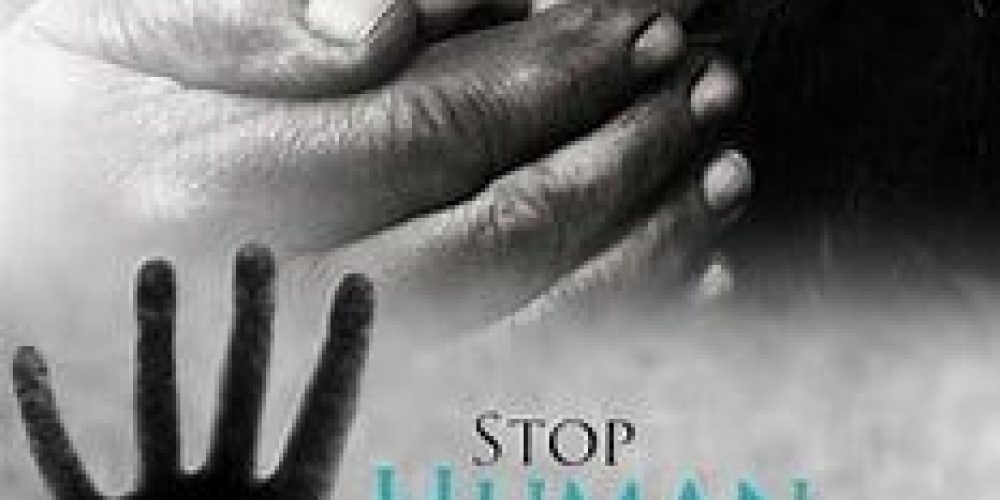byChernor M. Jalloh
In a poignant and significant gathering on August 28th, 2024, the Bintumani Hotel in Freetown was the venue for a retrospective session focused on the ongoing battle against child trafficking in Sierra Leone. Organized by the Government of Sierra Leone and the Center on Human Trafficking Research & Outreach (CenHTRO), the event highlighted the seriousness of child trafficking in the country and celebrated the collaborative efforts of organizations such as CenHTRO, CMDA-SL, and World Hope International (WHI). Led by CenHTRO’s Director, Professor David Okech, the retrospective served not only as a platform to reflect on past achievements but also as a powerful call to renew and intensify efforts in the fight against child trafficking.
Child trafficking remains a pervasive challenge in Sierra Leone, one that has been deeply entrenched in societal norms for far too long. The grim reality was brought to light recently when 17 trafficked children were repatriated from Guinea, handed over to Sierra Leonean authorities by the Guinean Embassy. This incident is a stark reminder of the urgent need to address the systemic issues that allow such exploitation to persist. It is a testament to the ongoing efforts of organizations like CenHTRO, CMDA-SL, and WHI that these children were rescued and returned to safety.
Acknowledging the Collaborative Efforts
The collaborative work of CenHTRO, CMDA-SL, and WHI has been instrumental in combating child trafficking across four critical districts: Kenema, Kailahun, Kono, and Kambia. As key players in this battle, these organizations have worked tirelessly to implement projects, collect vital data, and engage communities in protecting their most vulnerable members—children. The event at the Bintumani Hotel provided an opportunity to acknowledge these efforts. CMDA-SL, as a key partner, recognized the dedicated efforts of the CenHTRO team by presenting them with gifts of appreciation. Additionally, five data collectors from CMDA-SL were honored with certificates for their significant contributions, highlighting the importance of on-ground data collection in understanding and addressing the issue of trafficking.
Appreciating the Role of International Partners
The fight against child trafficking in Sierra Leone has also been significantly bolstered by international support, most notably from the U.S. Department of State. Through its funding, the Department of State has provided crucial resources that have enabled organizations like CenHTRO, CMDA-SL, and WHI to implement their anti-trafficking initiatives effectively. Without this financial backing, the scale and impact of these projects would have been severely limited. The U.S. Department of State’s commitment to this cause has not only facilitated the rescue and rehabilitation of trafficked children but has also strengthened the capacity of local organizations and the government to combat trafficking more robustly. Their support serves as a model of how international partnerships can bring about tangible change in the fight against human trafficking.
A Government Making Strides
The Government of Sierra Leone has shown a commendable commitment to the cause. Despite not fully meeting the minimum standards for the elimination of trafficking, significant strides have been made. The government’s efforts have been recognized, with Sierra Leone remaining on Tier 2 of the U.S. State Department’s Trafficking in Persons Report. The enactment of the Anti-Human Trafficking and Migrant Smuggling Act of 2022 is a landmark achievement. This legislation not only increases penalties for trafficking crimes but also eliminates the option of fines in place of imprisonment for convicted traffickers, signaling a zero-tolerance approach.
The government’s support for the repatriation of Sierra Leonean victims abroad further demonstrates its commitment to tackling this issue on a global scale. However, there is still much work to be done. The number of traffickers prosecuted and convicted remains low, and the identification of victims has not kept pace with the growing concern. More alarmingly, victim services are grossly inadequate, and civil society organizations, which often bear the brunt of providing care and support, receive little to no financial support from the government.
The Role of Community and Family
The battle against child trafficking is not one that can be fought by organizations and governments alone. It requires the concerted effort of every member of society. Unfortunately, the traditional family unit, once a bastion of protection for children, is no longer sufficient. In many cases, families are either complicit in trafficking or unable to provide the necessary protection due to economic hardship or social pressures. As one participant poignantly noted, “It is the community that protects children now, not the family.” This shift underscores the need for community-based interventions and support systems that can step in where families fail.
A Call to Action
As Sierra Leone continues to grapple with the complex issue of child trafficking, it is imperative that we acknowledge and support the efforts of organizations like CenHTRO, CMDA-SL, and WHI. Their work has been a catalyst for change, sparking important conversations and driving action against this scourge. However, the fight is far from over. The government must intensify its efforts, not only by strengthening legal frameworks and enforcement but also by ensuring adequate support for victims and civil society organizations.
Child trafficking is not just a legal or economic issue; it is a moral one. Every child deserves to grow up in a safe, nurturing environment, free from the fear of exploitation. It is our collective responsibility—government, organizations, communities, and individuals—to make this a reality. The recent event at the Bintumani Hotel is a reminder that while progress has been made, the journey towards eradicating child trafficking in Sierra Leone is ongoing. We must remain vigilant, committed, and united in our efforts to protect the most vulnerable among us.




